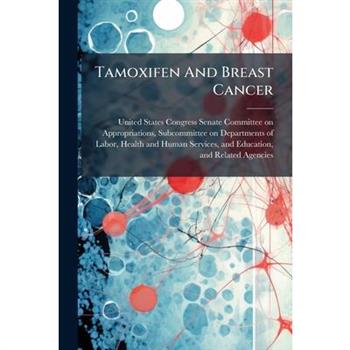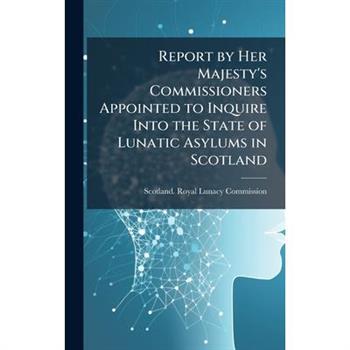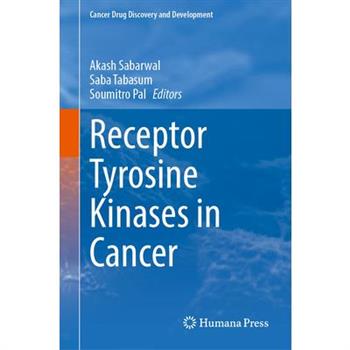Early Childhood Mental Health Consultation
Provides a blueprint for child care providers to use when hiring a mental health consultant. Discusses the types and essential features of mental health consultants, and the challenges in the consulting process. Presents recommendations for action.This work has been selected by scholars as being culturally important, and is part of the knowledge base of civilization as we know it. This work was reproduced from the original artifact, and remains as true to the original work as possible. Therefore, you will see the original copyright references, library stamps (as most of these works have been housed in our most important libraries around the world), and other notations in the work.This work is in the public domain in the United States of America, and possibly other nations. Within the United States, you may freely copy and distribute this work, as no entity (individual or corporate) has a copyright on the body of the work.As a reproduction of a historical artifact, this work may contain missing or blurred pages, poor pictures, errant marks, etc. Scholars believe, and we concur, that this work is important enough to be preserved, reproduced, and made generally available to the public. We appreciate your support of the preservation process, and thank you for being an important part of keeping this knowledge alive and relevant.
Problem Gambling Toolkit
Provides basic information on screening, assessment, referral, and treatment for problem gambling to substance abuse counselors, mental health therapists, primary care physicians, and social workers. Discusses financial issues and strategies.This work has been selected by scholars as being culturally important, and is part of the knowledge base of civilization as we know it. This work was reproduced from the original artifact, and remains as true to the original work as possible. Therefore, you will see the original copyright references, library stamps (as most of these works have been housed in our most important libraries around the world), and other notations in the work.This work is in the public domain in the United States of America, and possibly other nations. Within the United States, you may freely copy and distribute this work, as no entity (individual or corporate) has a copyright on the body of the work.As a reproduction of a historical artifact, this work may contain missing or blurred pages, poor pictures, errant marks, etc. Scholars believe, and we concur, that this work is important enough to be preserved, reproduced, and made generally available to the public. We appreciate your support of the preservation process, and thank you for being an important part of keeping this knowledge alive and relevant.
Roadmap to Seclusion and Restraint Free Mental Health Services
Supports the training of direct-care staff in strategies for the prevention and elimination of seclusion and restraint in the treatment of people with serious mental illness or children with serious emotional disturbances. Uses approaches focused on consumer well-being.This work has been selected by scholars as being culturally important, and is part of the knowledge base of civilization as we know it. This work was reproduced from the original artifact, and remains as true to the original work as possible. Therefore, you will see the original copyright references, library stamps (as most of these works have been housed in our most important libraries around the world), and other notations in the work.This work is in the public domain in the United States of America, and possibly other nations. Within the United States, you may freely copy and distribute this work, as no entity (individual or corporate) has a copyright on the body of the work.As a reproduction of a historical artifact, this work may contain missing or blurred pages, poor pictures, errant marks, etc. Scholars believe, and we concur, that this work is important enough to be preserved, reproduced, and made generally available to the public. We appreciate your support of the preservation process, and thank you for being an important part of keeping this knowledge alive and relevant.
Substance Abuse Treatment for Adults in the Criminal Justice System
Offers guidelines to help clinicians address substance abuse treatment issues in various settings within the criminal justice system. Discusses screening and assessment, triage and placement, treatment planning, and treatment issues for specific populations. Includes program development guidance for administrators.This work has been selected by scholars as being culturally important, and is part of the knowledge base of civilization as we know it. This work was reproduced from the original artifact, and remains as true to the original work as possible. Therefore, you will see the original copyright references, library stamps (as most of these works have been housed in our most important libraries around the world), and other notations in the work.This work is in the public domain in the United States of America, and possibly other nations. Within the United States, you may freely copy and distribute this work, as no entity (individual or corporate) has a copyright on the body of the work.As a reproduction of a historical artifact, this work may contain missing or blurred pages, poor pictures, errant marks, etc. Scholars believe, and we concur, that this work is important enough to be preserved, reproduced, and made generally available to the public. We appreciate your support of the preservation process, and thank you for being an important part of keeping this knowledge alive and relevant.
Detoxification and Substance Abuse Treatment Training Manual
Provides a training program for substance abuse treatment staff on detoxification and withdrawal. Discusses detox services for specific substances, psychosocial and biomedical issues, co-occurring medical and psychiatric conditions, and financing issues.This work has been selected by scholars as being culturally important, and is part of the knowledge base of civilization as we know it. This work was reproduced from the original artifact, and remains as true to the original work as possible. Therefore, you will see the original copyright references, library stamps (as most of these works have been housed in our most important libraries around the world), and other notations in the work.This work is in the public domain in the United States of America, and possibly other nations. Within the United States, you may freely copy and distribute this work, as no entity (individual or corporate) has a copyright on the body of the work.As a reproduction of a historical artifact, this work may contain missing or blurred pages, poor pictures, errant marks, etc. Scholars believe, and we concur, that this work is important enough to be preserved, reproduced, and made generally available to the public. We appreciate your support of the preservation process, and thank you for being an important part of keeping this knowledge alive and relevant.
Early Childhood Mental Health Consultation
Provides a blueprint for child care providers to use when hiring a mental health consultant. Discusses the types and essential features of mental health consultants, and the challenges in the consulting process. Presents recommendations for action.This work has been selected by scholars as being culturally important, and is part of the knowledge base of civilization as we know it. This work was reproduced from the original artifact, and remains as true to the original work as possible. Therefore, you will see the original copyright references, library stamps (as most of these works have been housed in our most important libraries around the world), and other notations in the work.This work is in the public domain in the United States of America, and possibly other nations. Within the United States, you may freely copy and distribute this work, as no entity (individual or corporate) has a copyright on the body of the work.As a reproduction of a historical artifact, this work may contain missing or blurred pages, poor pictures, errant marks, etc. Scholars believe, and we concur, that this work is important enough to be preserved, reproduced, and made generally available to the public. We appreciate your support of the preservation process, and thank you for being an important part of keeping this knowledge alive and relevant.
Enhancing Motivation for Change Inservice Training
Provides a training manual for introducing substance abuse treatment counselors, clinicians, and other professionals to basic concepts and techniques of motivational enhancement interventions presented in TIP 35. Includes modules with overheads and handouts.This work has been selected by scholars as being culturally important, and is part of the knowledge base of civilization as we know it. This work was reproduced from the original artifact, and remains as true to the original work as possible. Therefore, you will see the original copyright references, library stamps (as most of these works have been housed in our most important libraries around the world), and other notations in the work.This work is in the public domain in the United States of America, and possibly other nations. Within the United States, you may freely copy and distribute this work, as no entity (individual or corporate) has a copyright on the body of the work.As a reproduction of a historical artifact, this work may contain missing or blurred pages, poor pictures, errant marks, etc. Scholars believe, and we concur, that this work is important enough to be preserved, reproduced, and made generally available to the public. We appreciate your support of the preservation process, and thank you for being an important part of keeping this knowledge alive and relevant.
Illness Management and Recovery Evidence-Based Practices (EBP) KIT
Guides public officials in developing illness-management and recovery mental health programs that emphasize personal goal-setting and actionable strategies for recovery. Offers guidance grounded in evidence-based practices. Kit includes 10 booklets.This work has been selected by scholars as being culturally important, and is part of the knowledge base of civilization as we know it. This work was reproduced from the original artifact, and remains as true to the original work as possible. Therefore, you will see the original copyright references, library stamps (as most of these works have been housed in our most important libraries around the world), and other notations in the work.This work is in the public domain in the United States of America, and possibly other nations. Within the United States, you may freely copy and distribute this work, as no entity (individual or corporate) has a copyright on the body of the work.As a reproduction of a historical artifact, this work may contain missing or blurred pages, poor pictures, errant marks, etc. Scholars believe, and we concur, that this work is important enough to be preserved, reproduced, and made generally available to the public. We appreciate your support of the preservation process, and thank you for being an important part of keeping this knowledge alive and relevant.
Tap 21-A
Lists competencies necessary for effective supervision in alcohol abuse and drug abuse treatment programs. Provides administrators with step-by-step guidelines for implementing a comprehensive supervisory training and workforce development component.This work has been selected by scholars as being culturally important, and is part of the knowledge base of civilization as we know it. This work was reproduced from the original artifact, and remains as true to the original work as possible. Therefore, you will see the original copyright references, library stamps (as most of these works have been housed in our most important libraries around the world), and other notations in the work.This work is in the public domain in the United States of America, and possibly other nations. Within the United States, you may freely copy and distribute this work, as no entity (individual or corporate) has a copyright on the body of the work.As a reproduction of a historical artifact, this work may contain missing or blurred pages, poor pictures, errant marks, etc. Scholars believe, and we concur, that this work is important enough to be preserved, reproduced, and made generally available to the public. We appreciate your support of the preservation process, and thank you for being an important part of keeping this knowledge alive and relevant.
Substance Abuse Treatment for Persons With Co-Occurring Disorders
Guides substance abuse and mental health professionals in developing an integrated treatment community to address the needs of clients with co-occurring disorders. Covers outpatient and resident treatment, self-help programs, workforce development, and funding.This work has been selected by scholars as being culturally important, and is part of the knowledge base of civilization as we know it. This work was reproduced from the original artifact, and remains as true to the original work as possible. Therefore, you will see the original copyright references, library stamps (as most of these works have been housed in our most important libraries around the world), and other notations in the work.This work is in the public domain in the United States of America, and possibly other nations. Within the United States, you may freely copy and distribute this work, as no entity (individual or corporate) has a copyright on the body of the work.As a reproduction of a historical artifact, this work may contain missing or blurred pages, poor pictures, errant marks, etc. Scholars believe, and we concur, that this work is important enough to be preserved, reproduced, and made generally available to the public. We appreciate your support of the preservation process, and thank you for being an important part of keeping this knowledge alive and relevant.
Illness Management and Recovery Evidence-Based Practices (EBP) KIT
Guides public officials in developing illness-management and recovery mental health programs that emphasize personal goal-setting and actionable strategies for recovery. Offers guidance grounded in evidence-based practices. Kit includes 10 booklets.This work has been selected by scholars as being culturally important, and is part of the knowledge base of civilization as we know it. This work was reproduced from the original artifact, and remains as true to the original work as possible. Therefore, you will see the original copyright references, library stamps (as most of these works have been housed in our most important libraries around the world), and other notations in the work.This work is in the public domain in the United States of America, and possibly other nations. Within the United States, you may freely copy and distribute this work, as no entity (individual or corporate) has a copyright on the body of the work.As a reproduction of a historical artifact, this work may contain missing or blurred pages, poor pictures, errant marks, etc. Scholars believe, and we concur, that this work is important enough to be preserved, reproduced, and made generally available to the public. We appreciate your support of the preservation process, and thank you for being an important part of keeping this knowledge alive and relevant.
Problem Gambling Toolkit
Provides basic information on screening, assessment, referral, and treatment for problem gambling to substance abuse counselors, mental health therapists, primary care physicians, and social workers. Discusses financial issues and strategies.This work has been selected by scholars as being culturally important, and is part of the knowledge base of civilization as we know it. This work was reproduced from the original artifact, and remains as true to the original work as possible. Therefore, you will see the original copyright references, library stamps (as most of these works have been housed in our most important libraries around the world), and other notations in the work.This work is in the public domain in the United States of America, and possibly other nations. Within the United States, you may freely copy and distribute this work, as no entity (individual or corporate) has a copyright on the body of the work.As a reproduction of a historical artifact, this work may contain missing or blurred pages, poor pictures, errant marks, etc. Scholars believe, and we concur, that this work is important enough to be preserved, reproduced, and made generally available to the public. We appreciate your support of the preservation process, and thank you for being an important part of keeping this knowledge alive and relevant.
Assertive Community Treatment (ACT)
Provides tools to implement the evidence-based practices of Assertive Community Treatment (ACT), which offers customized, community-based services for people with mental illness. Includes DVD, CD-ROM, brochures in English and Spanish, and PowerPoint presentation.This work has been selected by scholars as being culturally important, and is part of the knowledge base of civilization as we know it. This work was reproduced from the original artifact, and remains as true to the original work as possible. Therefore, you will see the original copyright references, library stamps (as most of these works have been housed in our most important libraries around the world), and other notations in the work.This work is in the public domain in the United States of America, and possibly other nations. Within the United States, you may freely copy and distribute this work, as no entity (individual or corporate) has a copyright on the body of the work.As a reproduction of a historical artifact, this work may contain missing or blurred pages, poor pictures, errant marks, etc. Scholars believe, and we concur, that this work is important enough to be preserved, reproduced, and made generally available to the public. We appreciate your support of the preservation process, and thank you for being an important part of keeping this knowledge alive and relevant.
Clinical And Pathological Notes On Pericarditis
"Clinical And Pathological Notes On Pericarditis" offers a detailed exploration of pericarditis, an inflammation of the pericardium, the sac-like membrane surrounding the heart. Authored by Sir William Tennant Gairdner, this work provides valuable clinical insights and pathological observations. This book is essential reading for medical professionals, students, and anyone interested in the historical aspects of cardiology and pathology. It presents a comprehensive analysis of pericarditis, combining clinical perspectives with detailed pathological findings.This work has been selected by scholars as being culturally important, and is part of the knowledge base of civilization as we know it. This work was reproduced from the original artifact, and remains as true to the original work as possible. Therefore, you will see the original copyright references, library stamps (as most of these works have been housed in our most important libraries around the world), and other notations in the work.This work is in the public domain in the United States of America, and possibly other nations. Within the United States, you may freely copy and distribute this work, as no entity (individual or corporate) has a copyright on the body of the work.As a reproduction of a historical artifact, this work may contain missing or blurred pages, poor pictures, errant marks, etc. Scholars believe, and we concur, that this work is important enough to be preserved, reproduced, and made generally available to the public. We appreciate your support of the preservation process, and thank you for being an important part of keeping this knowledge alive and relevant.
Mental Health Screens for Corrections
The National Institute of Justice (NIJ) is the research, development and evaluationagency of the US Department of Justice. The NIJ is dedicated to improvingknowledge and understanding of crime and justice issues through science. NIJprovides objective and independent knowledge and tools to reduce crime andpromote justice, particularly at the state and local levels. Each year, the NIJ publishes and sponsors dozens of research and study documentsdetailing results, analyses and statistics that help to further the organization'smission. These documents relate to topics like biometrics, corrections technology, gun violence, digital forensics, human trafficking, electronic crime, terrorism, tribaljustice and more. This document is one of these publications.This work has been selected by scholars as being culturally important, and is part of the knowledge base of civilization as we know it. This work was reproduced from the original artifact, and remains as true to the original work as possible. Therefore, you will see the original copyright references, library stamps (as most of these works have been housed in our most important libraries around the world), and other notations in the work.This work is in the public domain in the United States of America, and possibly other nations. Within the United States, you may freely copy and distribute this work, as no entity (individual or corporate) has a copyright on the body of the work.As a reproduction of a historical artifact, this work may contain missing or blurred pages, poor pictures, errant marks, etc. Scholars believe, and we concur, that this work is important enough to be preserved, reproduced, and made generally available to the public. We appreciate your support of the preservation process, and thank you for being an important part of keeping this knowledge alive and relevant.
Mental Health Care
The purpose of this research paper is to demonstrate how the USAF can take additional steps to de-stigmatize mental health treatment, and encourage help seeking behavior among its active duty members. Its aim is to spread awareness of current mental health issues, and to offer some solutions in coping with issues involved with seeking help for mental health care. This paper discusses the stigma surrounding mental health care within society and the military. The review of issues concentrates on generic and historic sources of mental health topics, as well several primary military resources. It presents a thorough and balanced look at the current issues impacting mental health, and what has caused these issues to remain. The research then examines the initiatives the USAF has recently undertaken to address these issues. It suggests the military is not immune from the problems associated with seeking help for mental health care, and though the USAF has recognized the problems, its successful at de-stigmatizing the use of military care facilities for mental health care. Finally, the research suggests ways the USAF could further alleviate the problems in the future, and encourage more help seeking behavior among its members.This work has been selected by scholars as being culturally important, and is part of the knowledge base of civilization as we know it. This work was reproduced from the original artifact, and remains as true to the original work as possible. Therefore, you will see the original copyright references, library stamps (as most of these works have been housed in our most important libraries around the world), and other notations in the work.This work is in the public domain in the United States of America, and possibly other nations. Within the United States, you may freely copy and distribute this work, as no entity (individual or corporate) has a copyright on the body of the work.As a reproduction of a historical artifact, this work may contain missing or blurred pages, poor pictures, errant marks, etc. Scholars believe, and we concur, that this work is important enough to be preserved, reproduced, and made generally available to the public. We appreciate your support of the preservation process, and thank you for being an important part of keeping this knowledge alive and relevant.
The Evidence
Provides practice principles about integrated treatment for co-occurring disorders, an approach that helps people recover by offering mental health and substance abuse services at the same time and in one setting. Offers suggestions from successful programs.This work has been selected by scholars as being culturally important, and is part of the knowledge base of civilization as we know it. This work was reproduced from the original artifact, and remains as true to the original work as possible. Therefore, you will see the original copyright references, library stamps (as most of these works have been housed in our most important libraries around the world), and other notations in the work.This work is in the public domain in the United States of America, and possibly other nations. Within the United States, you may freely copy and distribute this work, as no entity (individual or corporate) has a copyright on the body of the work.As a reproduction of a historical artifact, this work may contain missing or blurred pages, poor pictures, errant marks, etc. Scholars believe, and we concur, that this work is important enough to be preserved, reproduced, and made generally available to the public. We appreciate your support of the preservation process, and thank you for being an important part of keeping this knowledge alive and relevant.
Brief Interventions and Brief Therapies for Substance Abuse
Describes brief intervention and brief therapy techniques for treatment of alcohol abuse and drug abuse, including brief cognitive-behavioral, strategic/ interactional, humanistic and existential, psychodynamic, family, and time-limited group therapies.This work has been selected by scholars as being culturally important, and is part of the knowledge base of civilization as we know it. This work was reproduced from the original artifact, and remains as true to the original work as possible. Therefore, you will see the original copyright references, library stamps (as most of these works have been housed in our most important libraries around the world), and other notations in the work.This work is in the public domain in the United States of America, and possibly other nations. Within the United States, you may freely copy and distribute this work, as no entity (individual or corporate) has a copyright on the body of the work.As a reproduction of a historical artifact, this work may contain missing or blurred pages, poor pictures, errant marks, etc. Scholars believe, and we concur, that this work is important enough to be preserved, reproduced, and made generally available to the public. We appreciate your support of the preservation process, and thank you for being an important part of keeping this knowledge alive and relevant.
Substance Abuse Among Older Adults
This quick guide offers succinct, easily accessible information to busy substance abuse treatment practitioners. Divided into sections, the guide is based entirely on "Substance Abuse Among Older Adults," number 26 in the Treatment Improvement Protocol (TIP) Series.This work has been selected by scholars as being culturally important, and is part of the knowledge base of civilization as we know it. This work was reproduced from the original artifact, and remains as true to the original work as possible. Therefore, you will see the original copyright references, library stamps (as most of these works have been housed in our most important libraries around the world), and other notations in the work.This work is in the public domain in the United States of America, and possibly other nations. Within the United States, you may freely copy and distribute this work, as no entity (individual or corporate) has a copyright on the body of the work.As a reproduction of a historical artifact, this work may contain missing or blurred pages, poor pictures, errant marks, etc. Scholars believe, and we concur, that this work is important enough to be preserved, reproduced, and made generally available to the public. We appreciate your support of the preservation process, and thank you for being an important part of keeping this knowledge alive and relevant.
Continuity of Offender Treatment for Substance Use Disorder From Institution to Community
Helps substance abuse treatment clinicians and case workers to assist offenders in the transition from the criminal justice system to life after release. Discusses assessment, transition plans, important services, special populations, and confidentiality.This work has been selected by scholars as being culturally important, and is part of the knowledge base of civilization as we know it. This work was reproduced from the original artifact, and remains as true to the original work as possible. Therefore, you will see the original copyright references, library stamps (as most of these works have been housed in our most important libraries around the world), and other notations in the work.This work is in the public domain in the United States of America, and possibly other nations. Within the United States, you may freely copy and distribute this work, as no entity (individual or corporate) has a copyright on the body of the work.As a reproduction of a historical artifact, this work may contain missing or blurred pages, poor pictures, errant marks, etc. Scholars believe, and we concur, that this work is important enough to be preserved, reproduced, and made generally available to the public. We appreciate your support of the preservation process, and thank you for being an important part of keeping this knowledge alive and relevant.
Interventions for Disruptive Behavior Disorders
Includes tools to assist in developing mental health programs that help prevent or reduce severe aggressive behavioral, emotional, and development problems in children by enhancing the knowledge of parents, caregivers, and providers. Kit includes six booklets.This work has been selected by scholars as being culturally important, and is part of the knowledge base of civilization as we know it. This work was reproduced from the original artifact, and remains as true to the original work as possible. Therefore, you will see the original copyright references, library stamps (as most of these works have been housed in our most important libraries around the world), and other notations in the work.This work is in the public domain in the United States of America, and possibly other nations. Within the United States, you may freely copy and distribute this work, as no entity (individual or corporate) has a copyright on the body of the work.As a reproduction of a historical artifact, this work may contain missing or blurred pages, poor pictures, errant marks, etc. Scholars believe, and we concur, that this work is important enough to be preserved, reproduced, and made generally available to the public. We appreciate your support of the preservation process, and thank you for being an important part of keeping this knowledge alive and relevant.
Shared Decision-Making in Mental Health Care
Gives an overview of shared decision-making (SDM), an intervention that enables people to actively manage their own health. Examines research on the effects of SDM in general and mental health care and includes recommendations for advancing SDM in practice.This work has been selected by scholars as being culturally important, and is part of the knowledge base of civilization as we know it. This work was reproduced from the original artifact, and remains as true to the original work as possible. Therefore, you will see the original copyright references, library stamps (as most of these works have been housed in our most important libraries around the world), and other notations in the work.This work is in the public domain in the United States of America, and possibly other nations. Within the United States, you may freely copy and distribute this work, as no entity (individual or corporate) has a copyright on the body of the work.As a reproduction of a historical artifact, this work may contain missing or blurred pages, poor pictures, errant marks, etc. Scholars believe, and we concur, that this work is important enough to be preserved, reproduced, and made generally available to the public. We appreciate your support of the preservation process, and thank you for being an important part of keeping this knowledge alive and relevant.
Substance Abuse Treatment for Persons With Co-Occurring Disorders
Offers tools to assist clinicians and counselors working with clients with co-occurring disorders. Addresses assessment, motivational enhancement, risk of harm and suicide, borderline personality disorder, residential interventions, and antisocial thinking.This work has been selected by scholars as being culturally important, and is part of the knowledge base of civilization as we know it. This work was reproduced from the original artifact, and remains as true to the original work as possible. Therefore, you will see the original copyright references, library stamps (as most of these works have been housed in our most important libraries around the world), and other notations in the work.This work is in the public domain in the United States of America, and possibly other nations. Within the United States, you may freely copy and distribute this work, as no entity (individual or corporate) has a copyright on the body of the work.As a reproduction of a historical artifact, this work may contain missing or blurred pages, poor pictures, errant marks, etc. Scholars believe, and we concur, that this work is important enough to be preserved, reproduced, and made generally available to the public. We appreciate your support of the preservation process, and thank you for being an important part of keeping this knowledge alive and relevant.
Cancer Care For The New Millennium--integrative Oncology
The BiblioGov Project is an effort to expand awareness of the public documents and records of the U.S. Government via print publications. In broadening the public understanding of government and its work, an enlightened democracy can grow and prosper. Ranging from historic Congressional Bills to the most recent Budget of the United States Government, the BiblioGov Project spans a wealth of government information. These works are now made available through an environmentally friendly, print-on-demand basis, using only what is necessary to meet the required demands of an interested public. We invite you to learn of the records of the U.S. Government, heightening the knowledge and debate that can lead from such publications.This work has been selected by scholars as being culturally important, and is part of the knowledge base of civilization as we know it. This work was reproduced from the original artifact, and remains as true to the original work as possible. Therefore, you will see the original copyright references, library stamps (as most of these works have been housed in our most important libraries around the world), and other notations in the work.This work is in the public domain in the United States of America, and possibly other nations. Within the United States, you may freely copy and distribute this work, as no entity (individual or corporate) has a copyright on the body of the work.As a reproduction of a historical artifact, this work may contain missing or blurred pages, poor pictures, errant marks, etc. Scholars believe, and we concur, that this work is important enough to be preserved, reproduced, and made generally available to the public. We appreciate your support of the preservation process, and thank you for being an important part of keeping this knowledge alive and relevant.
The American Journal Of Urology And Sexology
"The American Journal Of Urology And Sexology, Volume 5" offers a fascinating glimpse into the medical understanding and treatment of urological and sexual health issues at the turn of the 20th century. This historical journal provides a valuable resource for researchers, historians, and anyone interested in the evolution of medical science.Featuring a collection of articles, case studies, and observations from practicing physicians, this volume reflects the prevailing theories and clinical practices of its time. While medical knowledge has advanced significantly since its original publication, this journal remains an important document for understanding the historical context of modern urology and sexology.The American Journal Of Urology And Sexology serves as a primary source for those studying the social, cultural, and scientific aspects of medicine during a transformative era.This work has been selected by scholars as being culturally important, and is part of the knowledge base of civilization as we know it. This work was reproduced from the original artifact, and remains as true to the original work as possible. Therefore, you will see the original copyright references, library stamps (as most of these works have been housed in our most important libraries around the world), and other notations in the work.This work is in the public domain in the United States of America, and possibly other nations. Within the United States, you may freely copy and distribute this work, as no entity (individual or corporate) has a copyright on the body of the work.As a reproduction of a historical artifact, this work may contain missing or blurred pages, poor pictures, errant marks, etc. Scholars believe, and we concur, that this work is important enough to be preserved, reproduced, and made generally available to the public. We appreciate your support of the preservation process, and thank you for being an important part of keeping this knowledge alive and relevant.
Tamoxifen And Breast Cancer
The BiblioGov Project is an effort to expand awareness of the public documents and records of the U.S. Government via print publications. In broadening the public understanding of government and its work, an enlightened democracy can grow and prosper. Ranging from historic Congressional Bills to the most recent Budget of the United States Government, the BiblioGov Project spans a wealth of government information. These works are now made available through an environmentally friendly, print-on-demand basis, using only what is necessary to meet the required demands of an interested public. We invite you to learn of the records of the U.S. Government, heightening the knowledge and debate that can lead from such publications.This work has been selected by scholars as being culturally important, and is part of the knowledge base of civilization as we know it. This work was reproduced from the original artifact, and remains as true to the original work as possible. Therefore, you will see the original copyright references, library stamps (as most of these works have been housed in our most important libraries around the world), and other notations in the work.This work is in the public domain in the United States of America, and possibly other nations. Within the United States, you may freely copy and distribute this work, as no entity (individual or corporate) has a copyright on the body of the work.As a reproduction of a historical artifact, this work may contain missing or blurred pages, poor pictures, errant marks, etc. Scholars believe, and we concur, that this work is important enough to be preserved, reproduced, and made generally available to the public. We appreciate your support of the preservation process, and thank you for being an important part of keeping this knowledge alive and relevant.
On The Organic Diseases And Functional Disorders Of The Stomach
"On The Organic Diseases And Functional Disorders Of The Stomach" by George Budd is a detailed examination of various ailments affecting the stomach. This historical medical text provides insights into the understanding and treatment of gastrointestinal issues during the 19th century. Budd meticulously describes the pathology, symptoms, and potential remedies for a range of conditions, offering a valuable resource for those interested in the history of medicine and the evolution of gastroenterology. The book offers a comprehensive overview of both organic diseases, where physical abnormalities are present, and functional disorders, where the stomach malfunctions without apparent structural changes.This work has been selected by scholars as being culturally important, and is part of the knowledge base of civilization as we know it. This work was reproduced from the original artifact, and remains as true to the original work as possible. Therefore, you will see the original copyright references, library stamps (as most of these works have been housed in our most important libraries around the world), and other notations in the work.This work is in the public domain in the United States of America, and possibly other nations. Within the United States, you may freely copy and distribute this work, as no entity (individual or corporate) has a copyright on the body of the work.As a reproduction of a historical artifact, this work may contain missing or blurred pages, poor pictures, errant marks, etc. Scholars believe, and we concur, that this work is important enough to be preserved, reproduced, and made generally available to the public. We appreciate your support of the preservation process, and thank you for being an important part of keeping this knowledge alive and relevant.
On The Organic Diseases And Functional Disorders Of The Stomach
"On The Organic Diseases And Functional Disorders Of The Stomach" by George Budd is a detailed examination of various ailments affecting the stomach. This historical medical text provides insights into the understanding and treatment of gastrointestinal issues during the 19th century. Budd meticulously describes the pathology, symptoms, and potential remedies for a range of conditions, offering a valuable resource for those interested in the history of medicine and the evolution of gastroenterology. The book offers a comprehensive overview of both organic diseases, where physical abnormalities are present, and functional disorders, where the stomach malfunctions without apparent structural changes.This work has been selected by scholars as being culturally important, and is part of the knowledge base of civilization as we know it. This work was reproduced from the original artifact, and remains as true to the original work as possible. Therefore, you will see the original copyright references, library stamps (as most of these works have been housed in our most important libraries around the world), and other notations in the work.This work is in the public domain in the United States of America, and possibly other nations. Within the United States, you may freely copy and distribute this work, as no entity (individual or corporate) has a copyright on the body of the work.As a reproduction of a historical artifact, this work may contain missing or blurred pages, poor pictures, errant marks, etc. Scholars believe, and we concur, that this work is important enough to be preserved, reproduced, and made generally available to the public. We appreciate your support of the preservation process, and thank you for being an important part of keeping this knowledge alive and relevant.
Deaths From Restraints In Psychiatric Facilities
The BiblioGov Project is an effort to expand awareness of the public documents and records of the U.S. Government via print publications. In broadening the public understanding of government and its work, an enlightened democracy can grow and prosper. Ranging from historic Congressional Bills to the most recent Budget of the United States Government, the BiblioGov Project spans a wealth of government information. These works are now made available through an environmentally friendly, print-on-demand basis, using only what is necessary to meet the required demands of an interested public. We invite you to learn of the records of the U.S. Government, heightening the knowledge and debate that can lead from such publications.This work has been selected by scholars as being culturally important, and is part of the knowledge base of civilization as we know it. This work was reproduced from the original artifact, and remains as true to the original work as possible. Therefore, you will see the original copyright references, library stamps (as most of these works have been housed in our most important libraries around the world), and other notations in the work.This work is in the public domain in the United States of America, and possibly other nations. Within the United States, you may freely copy and distribute this work, as no entity (individual or corporate) has a copyright on the body of the work.As a reproduction of a historical artifact, this work may contain missing or blurred pages, poor pictures, errant marks, etc. Scholars believe, and we concur, that this work is important enough to be preserved, reproduced, and made generally available to the public. We appreciate your support of the preservation process, and thank you for being an important part of keeping this knowledge alive and relevant.
Transforming Mental Health And Substance Abuse Systems Of Care
The BiblioGov Project is an effort to expand awareness of the public documents and records of the U.S. Government via print publications. In broadening the public understanding of government and its work, an enlightened democracy can grow and prosper. Ranging from historic Congressional Bills to the most recent Budget of the United States Government, the BiblioGov Project spans a wealth of government information. These works are now made available through an environmentally friendly, print-on-demand basis, using only what is necessary to meet the required demands of an interested public. We invite you to learn of the records of the U.S. Government, heightening the knowledge and debate that can lead from such publications.This work has been selected by scholars as being culturally important, and is part of the knowledge base of civilization as we know it. This work was reproduced from the original artifact, and remains as true to the original work as possible. Therefore, you will see the original copyright references, library stamps (as most of these works have been housed in our most important libraries around the world), and other notations in the work.This work is in the public domain in the United States of America, and possibly other nations. Within the United States, you may freely copy and distribute this work, as no entity (individual or corporate) has a copyright on the body of the work.As a reproduction of a historical artifact, this work may contain missing or blurred pages, poor pictures, errant marks, etc. Scholars believe, and we concur, that this work is important enough to be preserved, reproduced, and made generally available to the public. We appreciate your support of the preservation process, and thank you for being an important part of keeping this knowledge alive and relevant.
Post Traumatic Stress Disorder Treatment And Research
The BiblioGov Project is an effort to expand awareness of the public documents and records of the U.S. Government via print publications. In broadening the public understanding of government and its work, an enlightened democracy can grow and prosper. Ranging from historic Congressional Bills to the most recent Budget of the United States Government, the BiblioGov Project spans a wealth of government information. These works are now made available through an environmentally friendly, print-on-demand basis, using only what is necessary to meet the required demands of an interested public. We invite you to learn of the records of the U.S. Government, heightening the knowledge and debate that can lead from such publications.This work has been selected by scholars as being culturally important, and is part of the knowledge base of civilization as we know it. This work was reproduced from the original artifact, and remains as true to the original work as possible. Therefore, you will see the original copyright references, library stamps (as most of these works have been housed in our most important libraries around the world), and other notations in the work.This work is in the public domain in the United States of America, and possibly other nations. Within the United States, you may freely copy and distribute this work, as no entity (individual or corporate) has a copyright on the body of the work.As a reproduction of a historical artifact, this work may contain missing or blurred pages, poor pictures, errant marks, etc. Scholars believe, and we concur, that this work is important enough to be preserved, reproduced, and made generally available to the public. We appreciate your support of the preservation process, and thank you for being an important part of keeping this knowledge alive and relevant.
Recent Statistics Of Heart Disease With Special Reference To Its Increasing Incidence
"Recent Statistics Of Heart Disease With Special Reference To Its Increasing Incidence" by Frederick Ludwig Hoffman offers a detailed examination of the statistical trends in heart disease. This study provides critical insights into the factors contributing to the rising incidence of heart-related ailments. Hoffman's work is a valuable resource for medical professionals, public health officials, and researchers seeking to understand and address the growing challenge of heart disease. The book presents a comprehensive analysis of relevant data, making it an essential contribution to the field of cardiology and preventative medicine.This work has been selected by scholars as being culturally important, and is part of the knowledge base of civilization as we know it. This work was reproduced from the original artifact, and remains as true to the original work as possible. Therefore, you will see the original copyright references, library stamps (as most of these works have been housed in our most important libraries around the world), and other notations in the work.This work is in the public domain in the United States of America, and possibly other nations. Within the United States, you may freely copy and distribute this work, as no entity (individual or corporate) has a copyright on the body of the work.As a reproduction of a historical artifact, this work may contain missing or blurred pages, poor pictures, errant marks, etc. Scholars believe, and we concur, that this work is important enough to be preserved, reproduced, and made generally available to the public. We appreciate your support of the preservation process, and thank you for being an important part of keeping this knowledge alive and relevant.
The Lungs in Health and Disease
"The Lungs in Health and Disease" offers a comprehensive exploration of respiratory physiology and pathology. Written by George Sexton, this book delves into the intricate workings of the pulmonary system, examining its functionality in maintaining overall health and also detailing the various diseases that can compromise its efficiency. From basic anatomy to advanced diagnostic techniques, the book provides a detailed overview suitable for medical professionals, students, and anyone interested in understanding the complexities of respiratory health. Topics covered range from common ailments like asthma and bronchitis to more complex conditions such as pneumonia and pulmonary fibrosis. It also emphasizes preventative measures and treatments, making it a valuable resource for both clinical reference and academic study. Sexton's expertise provides readers with a strong foundation in pulmonary medicine, underlining the critical role of the lungs in sustaining life.This work has been selected by scholars as being culturally important, and is part of the knowledge base of civilization as we know it. This work was reproduced from the original artifact, and remains as true to the original work as possible. Therefore, you will see the original copyright references, library stamps (as most of these works have been housed in our most important libraries around the world), and other notations in the work.This work is in the public domain in the United States of America, and possibly other nations. Within the United States, you may freely copy and distribute this work, as no entity (individual or corporate) has a copyright on the body of the work.As a reproduction of a historical artifact, this work may contain missing or blurred pages, poor pictures, errant marks, etc. Scholars believe, and we concur, that this work is important enough to be preserved, reproduced, and made generally available to the public. We appreciate your support of the preservation process, and thank you for being an important part of keeping this knowledge alive and relevant.
Surgical After-Treatment
"Surgical After-Treatment" offers a detailed guide to the postoperative care practices prevalent in the early 20th century. Written by Le Roi Goddard Crandon, this historical text provides insights into the surgical techniques and recovery protocols of its time. The book meticulously covers various aspects of patient management following surgical interventions, reflecting the state of medical knowledge and practice during this period. This book serves as a valuable resource for historians of medicine, students, and anyone interested in understanding the evolution of surgical care. It offers a unique perspective on how medical professionals approached patient recovery and the challenges they faced in the pre-antibiotic era. Explore the methods and insights that shaped modern surgical after-treatment through this meticulously detailed historical account.This work has been selected by scholars as being culturally important, and is part of the knowledge base of civilization as we know it. This work was reproduced from the original artifact, and remains as true to the original work as possible. Therefore, you will see the original copyright references, library stamps (as most of these works have been housed in our most important libraries around the world), and other notations in the work.This work is in the public domain in the United States of America, and possibly other nations. Within the United States, you may freely copy and distribute this work, as no entity (individual or corporate) has a copyright on the body of the work.As a reproduction of a historical artifact, this work may contain missing or blurred pages, poor pictures, errant marks, etc. Scholars believe, and we concur, that this work is important enough to be preserved, reproduced, and made generally available to the public. We appreciate your support of the preservation process, and thank you for being an important part of keeping this knowledge alive and relevant.
American Journal of Psychiatry
Explore the landscape of psychiatric research and clinical practice with the "American Journal of Psychiatry, Volume 71." This comprehensive volume presents a collection of articles covering diverse topics within the field, offering insights into diagnosis, treatment, and understanding of mental health disorders. A vital resource for psychiatrists, psychologists, researchers, and anyone interested in the advancements shaping modern psychiatric care, this journal provides a detailed look into the scientific investigations and scholarly discussions defining contemporary mental health practices. Delve into the studies and analyses that contribute to our evolving comprehension of the human mind and its complexities.This work has been selected by scholars as being culturally important, and is part of the knowledge base of civilization as we know it. This work was reproduced from the original artifact, and remains as true to the original work as possible. Therefore, you will see the original copyright references, library stamps (as most of these works have been housed in our most important libraries around the world), and other notations in the work.This work is in the public domain in the United States of America, and possibly other nations. Within the United States, you may freely copy and distribute this work, as no entity (individual or corporate) has a copyright on the body of the work.As a reproduction of a historical artifact, this work may contain missing or blurred pages, poor pictures, errant marks, etc. Scholars believe, and we concur, that this work is important enough to be preserved, reproduced, and made generally available to the public. We appreciate your support of the preservation process, and thank you for being an important part of keeping this knowledge alive and relevant.
Report by Her Majesty's Commissioners Appointed to Inquire Into the State of Lunatic Asylums in Scotland
This is a comprehensive historical report, "Report by Her Majesty's Commissioners Appointed to Inquire Into the State of Lunatic Asylums in Scotland, And the Existing Law in Reference to Lunatics and Lunatic Asylums in That Part of the United Kingdom, Volumes 1-2," documenting the findings of the Royal Lunacy Commission. The report provides detailed insights into the conditions, practices, and legal frameworks surrounding mental health care in 19th-century Scotland. Compiled by Scotland's Royal Lunacy Commission, this multi-volume work offers a valuable resource for researchers, historians, and anyone interested in the history of mental health, social welfare, and legal reforms related to mental illness. It includes observations, data, and recommendations that reflect the societal attitudes and medical understanding of the time. This work has been selected by scholars as being culturally important, and is part of the knowledge base of civilization as we know it. This work was reproduced from the original artifact, and remains as true to the original work as possible. Therefore, you will see the original copyright references, library stamps (as most of these works have been housed in our most important libraries around the world), and other notations in the work.This work is in the public domain in the United States of America, and possibly other nations. Within the United States, you may freely copy and distribute this work, as no entity (individual or corporate) has a copyright on the body of the work.As a reproduction of a historical artifact, this work may contain missing or blurred pages, poor pictures, errant marks, etc. Scholars believe, and we concur, that this work is important enough to be preserved, reproduced, and made generally available to the public. We appreciate your support of the preservation process, and thank you for being an important part of keeping this knowledge alive and relevant.
Annual Report...1860-1907, Issues 20-35
This collection comprises the Annual Reports of the Cincinnati Longview Hospital, spanning the years 1860-1907, specifically Issues 20-35. These reports offer a detailed look into the operations, patient care, and administrative functions of a significant psychiatric institution during a pivotal period in the development of mental health treatment in the United States. Researchers and historians will find valuable primary source material documenting the evolution of psychiatric practices, the demographics of patient populations, and the challenges faced by institutions dedicated to mental healthcare in the late 19th and early 20th centuries. The reports provide insights into the social attitudes toward mental illness, the approaches to treatment, and the internal workings of a major hospital in the Midwest.This work has been selected by scholars as being culturally important, and is part of the knowledge base of civilization as we know it. This work was reproduced from the original artifact, and remains as true to the original work as possible. Therefore, you will see the original copyright references, library stamps (as most of these works have been housed in our most important libraries around the world), and other notations in the work.This work is in the public domain in the United States of America, and possibly other nations. Within the United States, you may freely copy and distribute this work, as no entity (individual or corporate) has a copyright on the body of the work.As a reproduction of a historical artifact, this work may contain missing or blurred pages, poor pictures, errant marks, etc. Scholars believe, and we concur, that this work is important enough to be preserved, reproduced, and made generally available to the public. We appreciate your support of the preservation process, and thank you for being an important part of keeping this knowledge alive and relevant.
The Journal Of Urology
"The Journal Of Urology", the official journal of the American Urological Association, presents Volume 5. This esteemed publication serves as a key resource for urologists and medical professionals seeking the latest research, clinical findings, and advancements in the field. Published by the American Urological Association, this volume continues the journal's tradition of excellence in disseminating vital information relevant to the diagnosis, treatment, and understanding of urological conditions.Featuring contributions from leading experts, "The Journal Of Urology" offers in-depth insights into various aspects of urology, making it an indispensable addition to medical libraries and a valuable tool for practitioners dedicated to providing the highest quality of care. This work has been selected by scholars as being culturally important, and is part of the knowledge base of civilization as we know it. This work was reproduced from the original artifact, and remains as true to the original work as possible. Therefore, you will see the original copyright references, library stamps (as most of these works have been housed in our most important libraries around the world), and other notations in the work.This work is in the public domain in the United States of America, and possibly other nations. Within the United States, you may freely copy and distribute this work, as no entity (individual or corporate) has a copyright on the body of the work.As a reproduction of a historical artifact, this work may contain missing or blurred pages, poor pictures, errant marks, etc. Scholars believe, and we concur, that this work is important enough to be preserved, reproduced, and made generally available to the public. We appreciate your support of the preservation process, and thank you for being an important part of keeping this knowledge alive and relevant.
Complex General Surgical Oncology
Aimed for surgeons specializing in Complex General Surgical Oncology (CGSO), this work intends to help the reader prepare for board examinations and guide decision-making. Chapters focus on key content with an emphasis on evidence-based medical decision making. A supplemental section provides challenging scenarios. The book uniquely uses outlines and bullet points instead of prose. Chapters provide objective numbers that reflect a thorough understanding of each topic and are a valuable resource. We hope these will also aid the surgeon during patient conversations while early in their practice.
Inhalation in the Treatment of Disease; Its Therapeutics and Practice. A Treatise on the Inhalation of Gases, Vapors, Fumes, Compressed and Rarefied Air, Nebulized Fluids, and Powders
"Inhalation in the Treatment of Disease" (1876) explores the therapeutic use of inhaled substances, offering a comprehensive look at the techniques and practices of inhalation therapy in the 19th century. J. Solis Cohen details the inhalation of gases, vapors, fumes, compressed and rarefied air, nebulized fluids, and powders for treating various diseases. This treatise provides historical context and insight into the evolving field of respiratory medicine and alternative therapies. The book covers various applications, equipment, and considerations for effectively administering inhalation treatments.This work has been selected by scholars as being culturally important, and is part of the knowledge base of civilization as we know it. This work was reproduced from the original artifact, and remains as true to the original work as possible. Therefore, you will see the original copyright references, library stamps (as most of these works have been housed in our most important libraries around the world), and other notations in the work.This work is in the public domain in the United States of America, and possibly other nations. Within the United States, you may freely copy and distribute this work, as no entity (individual or corporate) has a copyright on the body of the work.As a reproduction of a historical artifact, this work may contain missing or blurred pages, poor pictures, errant marks, etc. Scholars believe, and we concur, that this work is important enough to be preserved, reproduced, and made generally available to the public. We appreciate your support of the preservation process, and thank you for being an important part of keeping this knowledge alive and relevant.
Recent Statistics Of Heart Disease With Special Reference To Its Increasing Incidence
"Recent Statistics Of Heart Disease With Special Reference To Its Increasing Incidence" by Frederick Ludwig Hoffman offers a detailed examination of the statistical trends in heart disease. This study provides critical insights into the factors contributing to the rising incidence of heart-related ailments. Hoffman's work is a valuable resource for medical professionals, public health officials, and researchers seeking to understand and address the growing challenge of heart disease. The book presents a comprehensive analysis of relevant data, making it an essential contribution to the field of cardiology and preventative medicine.This work has been selected by scholars as being culturally important, and is part of the knowledge base of civilization as we know it. This work was reproduced from the original artifact, and remains as true to the original work as possible. Therefore, you will see the original copyright references, library stamps (as most of these works have been housed in our most important libraries around the world), and other notations in the work.This work is in the public domain in the United States of America, and possibly other nations. Within the United States, you may freely copy and distribute this work, as no entity (individual or corporate) has a copyright on the body of the work.As a reproduction of a historical artifact, this work may contain missing or blurred pages, poor pictures, errant marks, etc. Scholars believe, and we concur, that this work is important enough to be preserved, reproduced, and made generally available to the public. We appreciate your support of the preservation process, and thank you for being an important part of keeping this knowledge alive and relevant.
Receptor Tyrosine Kinases in Cancer
Receptor tyrosine kinases (RTKs) play a critical role in a variety of cellular processes including growth, differentiation, motility, and metabolism. RTKs are frequently overexpressed and their aberrant signalling is associated with various diseases including cancer. Thus, RTKs have become one of the most important druggable targets for the treatment of cancer. The emergence of small kinase inhibitors in cancer treatment offers a strategic approach to the management of cancer that surpasses the efficacy of traditional drugs. Understanding RTK signaling mechanisms is of paramount importance, especially as the US FDA and other global regulatory agencies have approved several small-molecule tyrosine inhibitors. Moreover, pharmaceutical companies are actively developing new compounds for the treatment of various malignancies. This comprehensive book addresses a timely need by presenting the latest advances and cutting-edge insights into RTKs in cancer research. The chapters provide overviews and recent developments regarding the roles of key RTKs --such as, c-Met, AXL, VEGFR, EGFR, among others--in pro-tumorigenic signaling, therapeutic resistance, and targeted inhibition across different cancer types. This volume serves as an essential resource for researchers and students seeking to deepen their understanding of this rapidly evolving field.
Cancer Immunology and Genetics: An Interdisciplinary Approach
History Of A Successful Case Of Amputation At The Hip-joint
"History Of A Successful Case Of Amputation At The Hip-joint" details a remarkable surgical achievement by Joseph Sampson Gamgee. This historical record meticulously documents a successful amputation where the limb was notably large, measuring 48 inches in circumference and weighing 99 pounds. Gamgee's account provides invaluable insights into 19th-century surgical techniques, patient care, and the challenges faced by surgeons during that era.This case study is a testament to the advancements and limitations of medical science at the time. It is a valuable resource for historians of medicine, surgeons, and anyone interested in the evolution of surgical practices. The detailed observations and analysis offer a unique perspective on the complexities of performing such a major operation and managing post-operative recovery.This work has been selected by scholars as being culturally important, and is part of the knowledge base of civilization as we know it. This work was reproduced from the original artifact, and remains as true to the original work as possible. Therefore, you will see the original copyright references, library stamps (as most of these works have been housed in our most important libraries around the world), and other notations in the work.This work is in the public domain in the United States of America, and possibly other nations. Within the United States, you may freely copy and distribute this work, as no entity (individual or corporate) has a copyright on the body of the work.As a reproduction of a historical artifact, this work may contain missing or blurred pages, poor pictures, errant marks, etc. Scholars believe, and we concur, that this work is important enough to be preserved, reproduced, and made generally available to the public. We appreciate your support of the preservation process, and thank you for being an important part of keeping this knowledge alive and relevant.
Perimetry Of The Localization Of Sound
"Perimetry Of The Localization Of Sound" explores the fascinating area of auditory perception and spatial hearing. This work delves into the methods and findings related to how humans and other animals perceive the location of sounds in their environment.Author Daniel Starch presents detailed analyses of the techniques used to measure and map the ability to localize sound sources. This book provides valuable insights for researchers, audiologists, and anyone interested in understanding the complexities of the auditory system and its role in spatial awareness. The book's thorough approach makes it a crucial resource for comprehending the mechanisms behind our sense of sound direction and distance.This work has been selected by scholars as being culturally important, and is part of the knowledge base of civilization as we know it. This work was reproduced from the original artifact, and remains as true to the original work as possible. Therefore, you will see the original copyright references, library stamps (as most of these works have been housed in our most important libraries around the world), and other notations in the work.This work is in the public domain in the United States of America, and possibly other nations. Within the United States, you may freely copy and distribute this work, as no entity (individual or corporate) has a copyright on the body of the work.As a reproduction of a historical artifact, this work may contain missing or blurred pages, poor pictures, errant marks, etc. Scholars believe, and we concur, that this work is important enough to be preserved, reproduced, and made generally available to the public. We appreciate your support of the preservation process, and thank you for being an important part of keeping this knowledge alive and relevant.
On The Functions Of The Cerebrum
Explore the intricacies of the human brain with "On The Functions Of The Cerebrum: The Frontal Lobes, Volume 1, Issues 2-10" by Shepherd Ivory Franz. This detailed work delves into the functions of the cerebrum, with a specific focus on the frontal lobes. Franz provides insights into neurological functions, making this volume an invaluable resource for medical professionals, neuroscience researchers, and anyone interested in understanding the complexities of the brain. Gain a deeper understanding of how the frontal lobes contribute to overall brain function and neurological processes. This work remains a significant contribution to the field of neuroscience.This work has been selected by scholars as being culturally important, and is part of the knowledge base of civilization as we know it. This work was reproduced from the original artifact, and remains as true to the original work as possible. Therefore, you will see the original copyright references, library stamps (as most of these works have been housed in our most important libraries around the world), and other notations in the work.This work is in the public domain in the United States of America, and possibly other nations. Within the United States, you may freely copy and distribute this work, as no entity (individual or corporate) has a copyright on the body of the work.As a reproduction of a historical artifact, this work may contain missing or blurred pages, poor pictures, errant marks, etc. Scholars believe, and we concur, that this work is important enough to be preserved, reproduced, and made generally available to the public. We appreciate your support of the preservation process, and thank you for being an important part of keeping this knowledge alive and relevant.
National Association For The Protection Of The Insane, 1880-1882
This second volume from the National Association For The Protection Of The Insane offers a crucial window into the evolving landscape of mental health care in the United States during the late 19th century. Providing insights into the association's activities between 1880 and 1882, this volume documents the organization's efforts to advocate for humane treatment and improved facilities for those suffering from mental illness. Readers will find detailed accounts of meetings, discussions, and initiatives aimed at reforming the asylum system, combating abuse, and promoting a more compassionate understanding of mental health conditions. This historical document is invaluable for researchers, historians, and anyone interested in the history of mental health, social reform movements, and the development of psychiatric care in America. It provides a vital context for understanding contemporary approaches to mental health and the ongoing quest for equitable and effective care.This work has been selected by scholars as being culturally important, and is part of the knowledge base of civilization as we know it. This work was reproduced from the original artifact, and remains as true to the original work as possible. Therefore, you will see the original copyright references, library stamps (as most of these works have been housed in our most important libraries around the world), and other notations in the work.This work is in the public domain in the United States of America, and possibly other nations. Within the United States, you may freely copy and distribute this work, as no entity (individual or corporate) has a copyright on the body of the work.As a reproduction of a historical artifact, this work may contain missing or blurred pages, poor pictures, errant marks, etc. Scholars believe, and we concur, that this work is important enough to be preserved, reproduced, and made generally available to the public. We appreciate your support of the preservation process, and thank you for being an important part of keeping this knowledge alive and relevant.




















































